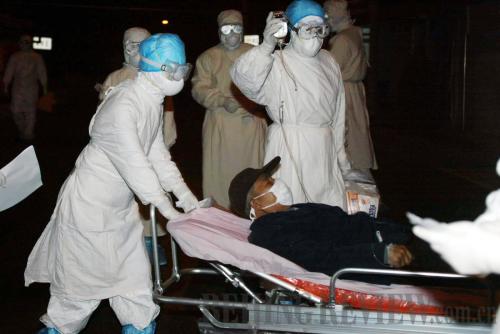|
 |
|
ISOLATED TREATMENT: A patient is wheeled into Beijing's designated SARS facility in suburban Xiaotangshan Township on May 19, 2003 (SUN YANXIN) |
New challenges
Yao Zhibin, who was appointed head of the Health Department of Guangdong during the SARS outbreak, said in March that the province is much better prepared in terms of epidemiological monitoring and medical service levels for an epidemic like the SARS outbreak. Yao said that governments of all levels in Guangdong had injected around 20 billion yuan ($3.22 billion) into improving local disease control and prevention system over the past decade. Last year, China's first provincial-level hospital dedicated to handling public health emergencies was put into use in Guangdong.
However, cover-ups of epidemics still exist as some local officials still worried that "real casualty numbers" would become an impediment to the future of their careers. Moreover, some experts point out that although the CDC has established a vertical system with local branches, the center can hardly mandate them in daily operation.
Li calls for more government intervention to address the problems. "Government's forceful intervention is the key to China's victory against the SARS outbreak," Li said. He believes that public health is not only related to a country's medical level, but also a society's overall economic, cultural and scientific development levels and political circumstances.
Since the beginning of this year, hazy weather has affected a vast area in China and lasted for days in some cities where many residents chose to wear facial masks during outdoor activities for self-protection against air pollution. "However, no systematic evaluation of the smoggy weather on human health is available in China," said Wang Yu in March.
Wang said that an institute under the CDC was conducting comprehensive research on impacts of haze on human health and would shortly launch a risk alert system. In his opinion, disease control and prevention agencies should play a leading role in the establishment of a nationwide system to cope with hazy weather-related medical emergencies.
Email us at: tangyuankai@bjreview.com | 